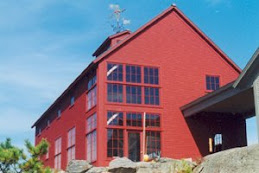We decided a geothermal system was not right for our house for the following reasons:
1) Cost. A geothermal system is going to run $25K plus (mostly higher) and that only includes wells, piping, pumps, etc. You still need ways to convert that 52F water to either heat or cooling for your house.
2) Limitation. As stated in reason one, you're only getting water to 52F, which is fine for cooling, but in our climate (Northwest Connecticut) we heat our houses much more than cool them, so you still are going to need energy to convert that 52F water. Most homes with geothermal use heat pumps to harvest the energy (via temperature differences). This is, obviously, a very simplistic way of looking at it, but it was pointed out to me by an engineer friend that it equates to running a whole-house refrigerator/condenser 365 days a year. Doesn't that seem excessive?? A well insulated house in CT should not require a whole lot of AC, so heating is your primary concern. In my subjective opinion, geothermal is better suited for mid-Atlantic states, where the AC is running more than the heat.
3) The conundrum. Geothermal systems use huge amounts of electricity to pump the water down and then back up the geothermal wells. The solution I hear THE MOST regarding this problem is "Well, you can just install more photovoltaic (PV) panels to offset the added electricity use and cost." Every time I hear this, I usually want to: A) scream, B) stifle a well rehearsed, but condescending explanation of the "less is more" sustainable building theory, described below, or C) ask "With who's money?" The later answer about who is paying is an interesting conversation in itself, because the current state of rebates in CT right now that include PV and geothermal systems means that lots of people are actually paying for these systems, not just the homeowner or home builder.
4) The less is more sustainable building theory. The whole idea of building more sustainably SHOULD BE to use less, being materials, energy, land, whatever, NOT to build systems that can operate your 10,000 SF mansion cheaper. People will likely call me un-American for this, but what the heck. Building smaller IS building greener. Smaller houses use less materials, use less energy, and are less expensive to operate and maintain. Hopefully, our fascination with purchasing lots of stuff that we don't need, and can't afford, and building houses to hold all this stuff is coming to an end, thanks in part to the Great Recession.
Case in point (Boy, I'm going to get in a lot of trouble for this one), the likely winner of the CT Zero Energy Challenge is a house that few people could afford to build and no bank would touch a mortgage for it. This is because so much money was spent on the renewables and heating and cooling systems, there is no way an appraisal would justify the costs. It has something ridiculous like 65 PV panels, many just to run the systems in the house including geothermal. The goal of the Challenge is to promote energy efficiency/green building and to show builders and homeowners that they can achieve net zero energy. How can you expand your mission when your poster project is so unattainable.
5) Matching the technology to the scenario. All the previous points notwithstanding, I do believe that geothermal can work correctly and efficiently under the right conditions in the right project, but the current craze for geothermal means the technology is being used in places where it is neither effective or beneficial. There was an article recently in the Waterbury Republican American newspaper in their Green Living weekly series (our house was featured one week) about a guy who recently installed geothermal. The article praised the system then ended with a breakdown of costs. I'm quoting numbers here from memory because I couldn't find the article online to verify my facts, so forgive me if I get my numbers wrong. He spent $28K for the system and the first two years didn't save anything due to electric costs (his costs actually went UP!!). So he spent more money for different pumps and to rework the system and achieved a savings of $1200 on the third year. The cost benefit analysis proves this technology was not a good choice for his home.
The geothermal craze won't end soon enough for me. Then maybe I won't have to explain that our geothermal system is located in the basement, then gleefully watch as the hapless fool looks for the basement door. Unfortunately, CT has started a geothermal rebate program that is fanning the flames of misinformation and the "experts" pushing these systems are drillers making fortunes on installing them, and don't care about operating costs for the homeowners. Such is life.





